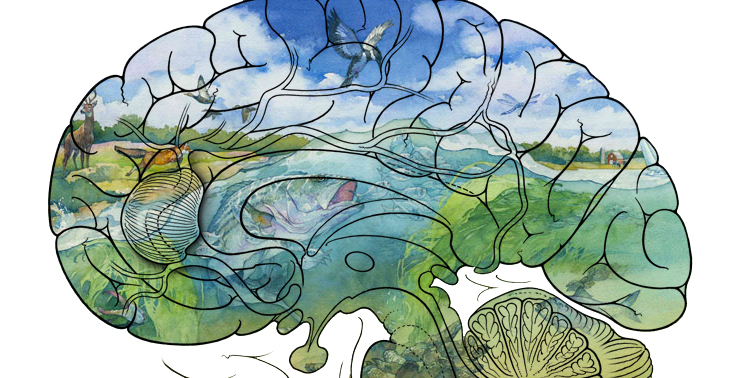Search
Close

The mind-as-ecosystem, NOT computer
“According to this view the mind is best understood as a complex and dynamic system, always in process, always changing, growing, and becoming more diverse and differentiated. At the same time they grow in internal complexity, ecosystems also become more integrated and specialized, filling up their niches and fostering symbioses. Ecosystems are composed of a wide variety of independent and yet co-evolving species, so there is not one central “unit” that can serve as an overall measure of the ecosystem. Rather, to understand an ecosystem you must take multiple measurements in a variety of places across a variety of time scales. Ecosystems are also sensitive and actively responsive to the larger environments in which they are nested. They can be easily disrupted and thrown off balance, but they are also generative and creative, self-regulating, and self-transcending. They are adaptable, open systems, and are constantly in a state of dynamic equilibrium. As ecosystems evolve they display non-linear growth, with jumps, dips, regressions, and daily and seasonal changes and rhythms. Their growth is not simple and linear, but messy and dynamic. And, finally, no two ecosystems are the same. Every ecosystem is unique. Give two ecosystems the same input and you should not expect the same output.”
…
“You are an ecosystem of co-evolving skills and ideas, each developing at a different rate, with complex symbiotic and competitive relations emerging among them over time. You are not simply smart or dumb, having either a fast or slow information processing unit between your ears. Instead, you are an ever-changing, context sensitive, ecosystem in process, with no central tendency or summary statistic. You may have highly evolved skills in some contexts, and primitive ones in others. You may be on the verge of a major evolutionary leap forward (a great “A HA!” is on the horizon), while at the moment you appear to be struggling. The only thing normative is uniqueness, ceaseless change, and non-linear growth.”
The two great passages above are from a recent blog post by Dr. Zachary Stein on why the mind and brain should not be thought of in metaphoric computer terms. Although I do use metaphoric computer imagery when I talk about metaphysics sometimes, I tend to agree with Stein that thinking of the brain and mind as computer hardware and software is hugely problematic; we simply shouldn’t do it.

0 Comments